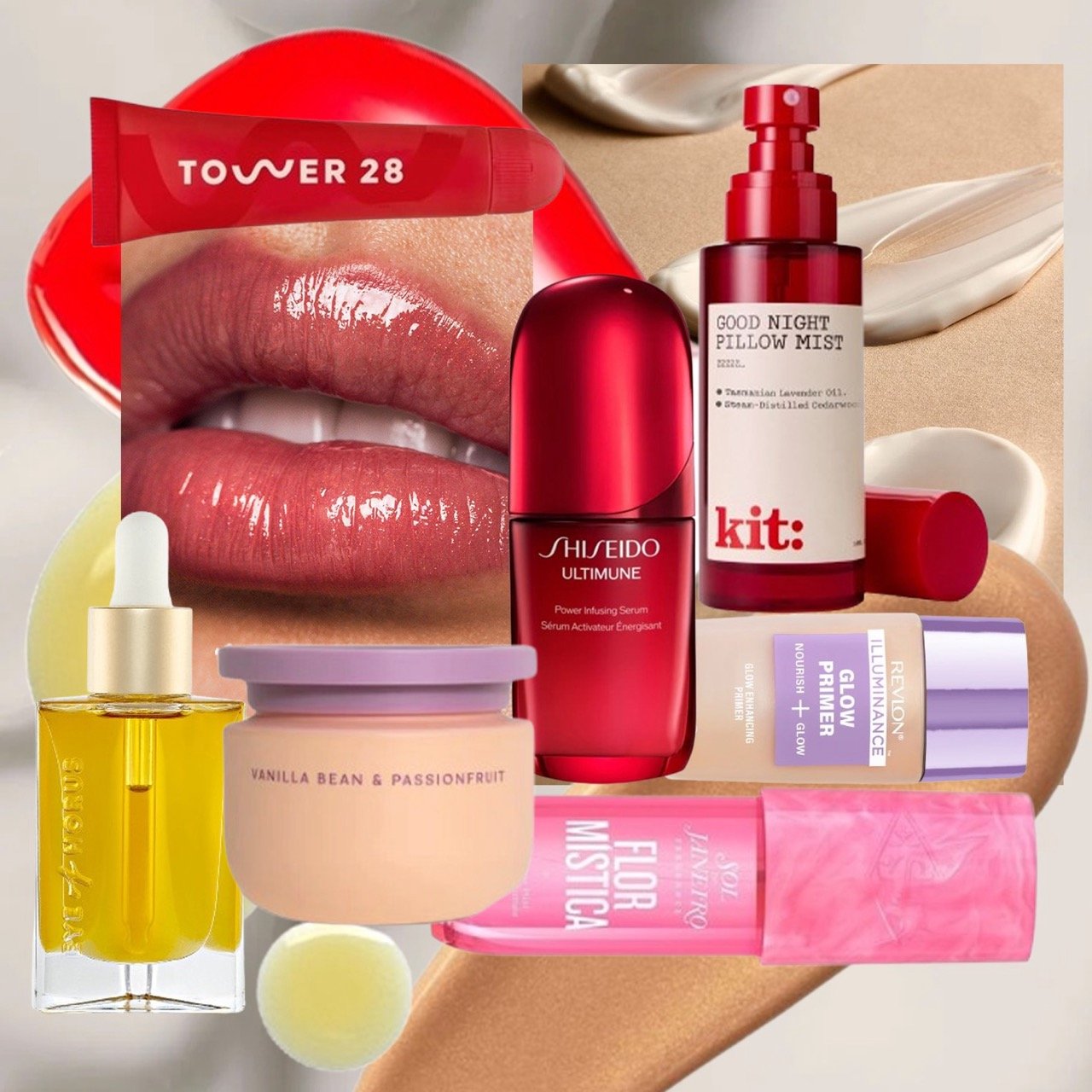Skincare ingredient trends come and go; says editor Trudi Brewer. Who believes she has seen it all from breast milk to snail mucus, all touted the latest and greatest anti-ageing remedies to help smooth and improve your skin. However, her go-to are those backed by science with a track record in delivering on their promise. Read on to find out more.
Editor Trudi Brewer shares the ingredients you need to know about when shopping for anti-ageing skincare on TV3’s The Cafè.
To help you navigate the skincare space, here are the skin-changing, ingredients for ageing skin, acne, dullness and sensitivities. So when you are shopping for skincare you can make sure you find the best beauty buys.
Broad-spectrum SPF
If you don't apply sunscreen religiously, there's just no point in wasting your time or money on top-notch anti-ageing skincare. Sun exposure is the number one cause of lines and wrinkles, and dark spots and the words broad-spectrum are what you need to look out for when buying sunscreens. This means the product you choose will protect your skin against both UVA rays, (the ageing rays) and UVB rays, (the rays that burn the skin). In New Zealand SPF 50, both mineral and chemical sunscreens are recommended, why? Both work to screen UV rays. Mineral or physical screens deflect the sun's rays from the skin, while chemical sunscreen absorbs the sun's rays once they have penetrated the skin. Together they work in tandem to prevent UV rays from damaging your precious skin cells.
Ceramides
Ceramides are lipids or (fats) that occur naturally in the skin. They keep the skin barrier healthy and supple, helping to keep moisture in and those damaging irritants out. In terms of anti-ageing ingredients, vitamin E, niacinamide B3, lecithin, and a range of plant oils including macadamia, sweet almond, and olive oil contain some of the best ceramides to have in your moisturisers or serums - and the best news? Ceramides boost other anti-ageing ingredients such as amino acids, peptides (proteins), glycerin, and the hero moisture magnet, hyaluronic acid making them work better.
Peptides
There are hundreds of peptides used in skincare, but what you need to know is that a peptide is a protein molecule made up by different amino acids. The fundamental building blocks of skin, without peptides (protein), skin losses it’s firmness - and wrinkles are the result. Make sure your night creams and serums contain youth -giving peptides if you want a smooth complexion at any age.
Glycolic acid
Part of a group of acids known as alpha-hydroxy acids or AHA's are water soluable and offer exfoliating benefits by gently dissolving the bonds between dead skin cells to improve skin texture, tone, and pore size. Glycolic acid has a unique anti-ageing benefit, boosting both the collagen and elastin in the skin, which helps smooth the look of fine lines and wrinkles. The caveat? Glycolic acid can be irritating on some skin types, especially those with super sensitive skin, or when used in high concentrations. Be sure if you are new to this ingredient, you start on a low dose. Cleansers are a great way to include AHA’s in your skincare routine.
Lactic acid
Another type of AHA, also water soluable is lactic acid, which is derived from milk. Generally less irritating than glycolic acid, it's a common anti-ageing ingredient found in mild skin peels and exfoliating products and cleansers. Its major drawcard is the exfoliating benefits that also help to increase the natural moisturizing factors in the skin.
Salicylic acid
Salicylic acid is oil soluable and from the beta-hydroxy acid family or BHA’s. Derived from willow bark it’s an excellent exfoliator and has the ability to penetrate deep into the skin to dissolve grime from clogged pores, healing acne and breakouts. In microdoses, it helps to keep the skin cell turnover regular promoting the look of a bright and glowy complexion. The best way to include this ingredient in your skincare is with moisturisers and serums.
Hyaluronic acid
One of the heavyweights when it comes to hydrating the skin, hyaluronic acid acts like a sponge, drawing water to and then trapping it in the skin. Not only is it a brilliant moisturiser, but it also helps plump up fine lines, because it can hold up to a thousand times its weight in water. The best news - your skin loves hyaluronic acid, it's a naturally occurring sugar in our body that we produce to keep joints supple, and the skin taught. Adding it into your skincare routine with moisturisers and serums is a great way to keep your skin looking supple and feeling hydrated.
Niacinimide or vitamin B3
For anyone who suffers from rosacea, eczema, and acne or has a tendency to flush due to skin sensitivities, vitamin B3 (niacinamide) helps calm that inflammation fast. With the extra added benefit of helping to brighten skin and blur brown spots, this is one powerful anti-ageing ingredient found in serums and moisturisers.
Vitamin C
A brilliant antioxidant, and in the same way, this vitamin helps fight infection in the body, vitamin C applied topically helps neutralise the skin-damaging effects from free radicals caused by our environment. It also stops the production of excess pigment in the skin, helping to fade brown spots and blemishes. And if all that wasn't enough, a daily dose of vitamin C in your skincare also helps to stimulate the collagen production deep in the skin. One tip, look for vitamin C products with pump applicators or those housed in opaque bottles, and store them in a cool, dark place, this ingredient quickly oxidises when exposed to the air. For best results from serums to moisturisers, apply vitamin C laced skincare day and night.
Retinol
Known as vitamin A, this is the gold standard for age management. Rated by dermatologists and skin experts for its ability to communicate with the cell receptors in the skin. This vitamin (used over time) encourages the cells in your skin to behave younger. There are four forms of Vitamin A. The oil (or ester) forms include retinyl propionate, retinyl palmitate and retinyl acetate, while the acid form is known as retinoic acid.
Each extract from the vitamin A family helps increase the rate at which your skin cells turnover, speeding up the exfoliation process, refreshing the look of sun-damaged and wrinkled skin while helping to combat blemishes and age spots. Including retinol in your nighttime skincare routine in the form of a serum or moisturiser is something everyone over 30 should consider.











Friday September 12th, we can’t wait to host you.